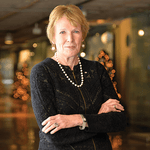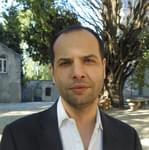Event Recording:
Since the beginning of the millennium, when Vladimir Putin took power in Russia, authoritarian leaders have come to dominate global politics.
Self-styled strongmen have risen to power in Moscow, Beijing, Delhi, Brasilia, Budapest, Ankara, Riyadh and Washington. These leaders are nationalists and social conservatives, with little tolerance for minorities, dissent or the interests of foreigners. At home, they encourage a cult of personality and claim to stand up for ordinary people against globalist elites; abroad, they posture as the embodiments of their nations. And they are not just operating in authoritarian political systems but have begun to emerge in the heartlands of liberal democracy.
This panel’s distinguished speakers will address the following questions: How and why did this new style of strongman leadership arrive? How likely is it to lead to global war or economic collapse? Most pressingly, we will be asking: are liberal societies, beset by internal turmoil and their own strongman dynamics, capable of checking and reversing this trend?

Professor Margaret MacMillan
Professor of International History
Margaret MacMillan is emeritus Professor of History at the University of Toronto and Professor of International History and the former Warden of St. Antony's College at the University of Oxford. She is a Fellow of the Royal Society of Literature, the Royal Society of Canada and the Royal Geographical Society of Canada, Honorary Fellow of the British Academy and of the Learned Society of Wales, Fellow of Trinity College, University of Toronto, Honorary Fellow of Lady Margaret Hall, St Hilda’s College and St Antony’s College at the University of Oxford. Margaret is also a Trustee of the Imperial War Museum.
Her books include Paris 1919: Six Months that Changed the World (2001) (Peacemakers in the UK) for which she was the first woman to win the Samuel Johnson Prize; Nixon in China: Six Days that Changed the World (Seize the Hour: When Nixon Met Mao in the UK); The Uses and Abuses of History (2008); The War that Ended Peace (2014). Her most recent book is War: How Conflict Shaped Us (2020) which was a New York Times Ten Best Books of the Year.

Lord Patten of Barnes
Chancellor, University of Oxford
Lord Patten is an Honorary Fellow of the Royal College of Physicians, Edinburgh, and Honorary Fellow of Balliol College, Oxford. He served as Chancellor of Newcastle University from 1999 to 2009, and was elected Chancellor of the University of Oxford in 2003.
Lord Patten was elected as Member of Parliament for Bath in May 1979, a seat he held until April 1992. In 1983 he wrote The Tory Case, a study of Conservatism. Following the General Election of June 1983, Lord Patten was appointed Parliamentary Under Secretary of State, Northern Ireland Office and in September 1985 Minister of State at the Department of Education and Science. In September 1986 he became Minister for Overseas Development at the Foreign & Commonwealth Office. He was appointed to the Privy Council in 1989 and was appointed a Companion of Honour in 1998. In July 1989 he became Secretary of State for the Environment. In November 1990 he was appointed Chancellor of the Duchy of Lancaster and Chairman of the Conservative Party.
Lord Patten was appointed Governor of Hong Kong in April 1992, a position he held until 1997, overseeing the return of Hong Kong to China. He was Chairman of the Independent Commission on Policing for Northern Ireland set up under the Good Friday Peace Agreement, which reported in 1999. From 1999 to 2004 he was European Commissioner for External Relations.
His publications include What Next? Surviving the 21st Century (2008); Not Quite the Diplomat: Home Truths About World Affairs (2005) and East and West (1998), about Asia and its relations with the rest of the world.

Gideon Rachman
Chief Foreign Affairs Columnist, Financial Times
Gideon Rachman became chief foreign affairs columnist for the Financial Times in July 2006. He joined the FT after a 15-year career at The Economist, which included spells as a foreign correspondent in Brussels, Washington and Bangkok.
He also edited The Economist’s business and Asia sections. His particular interests include American foreign policy, the European Union and globalisation.

Professor Ricardo Soares de Oliveira
Director, Oxford Martin Programme on African Governance (Chair)
Ricardo Soares de Oliveira is Professor of the International Politics of Africa at the Department of Politics and International Relations, University of Oxford, Official Fellow of St Peter's College, and a Fellow with the Global Public Policy Institute, Berlin.
His research interests include African politics (particularly West and Central Africa), the geopolitics of energy and international political economy, especially in the fields of natural resource extraction, state decay and post-conflict reconstruction.
Keep in touch
If you found this page useful, sign up to our monthly digest of the latest news and events
Subscribe